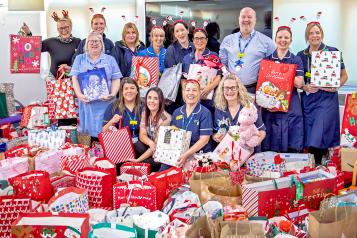Doncaster launches new research study to improve health outcomes for local children and families

The study will invite pregnant women to consent to their baby’s routinely collected health data to be included in research studies. The aim of the project is to help improve the health and wellbeing of children and families across Doncaster. Data collected will provide important insights into health inequalities within the area and inform ways that future health services can address these issues.
The project is conducted using a partnership approach with Doncaster and Bassetlaw Teaching Hospitals (DBTH), who host the Principal Investigator role and are the Data Controller for the project. Alongside are Rotherham Doncaster and South Humber NHS Foundation Trust (RDaSH), Doncaster Council, Primary Care Doncaster, supported by The University of Sheffield and Sheffield Hallam University.
Taking part in BaBi-D is voluntary and participants are free to withdraw at any time. This research, like every research project undertaken, is checked to make sure it meets the highest scientific and ethical standards.
As part of the study, DBTH has appointed a dedicated research midwife to the study, Kerry Dooley. Speaking about the project, she said: “Following babies from birth through to childhood and onwards is a really powerful way of understanding the many influences that go on to shape our lives.
“This research will carry on the successful work by the Born in Bradford team, who have conducted many research studies involving data provided by local families. There have been some really important findings through their studies, for example, the effects that maternal obesity has on the weight of newborn babies, the importance of providing green spaces for reducing maternal depression and the associated benefit this brings to their young children.
“We want to use the data to understand what the needs and challenges are especially those caused by inequalities, and bridge those gaps with local services that offer improved outcomes and greater inclusivity for our communities.
“We are keen to find out what matters to our local people and welcome your thoughts on research topics you would like the programme to explore. Do not hesitate to get in touch to give your suggestions.”
For families keen to get involved, more information will be shared on the Trust’s website and on social media in the coming months. You can find out more about the study, or provide the team with your research ideas, on the dedicated Born and Bred in Doncaster website: www.dbth.nhs.uk/babi-d
If you would like to read more about the findings from the research studies conducted by the Born in Bradford project, please go to: https://borninbradford.nhs.uk/our-findings/


